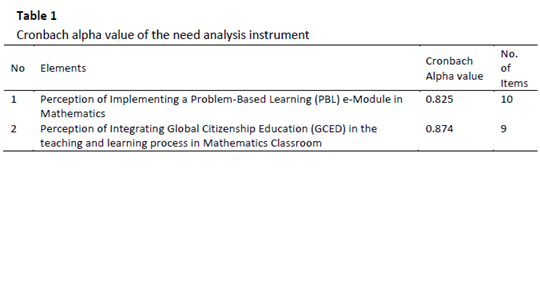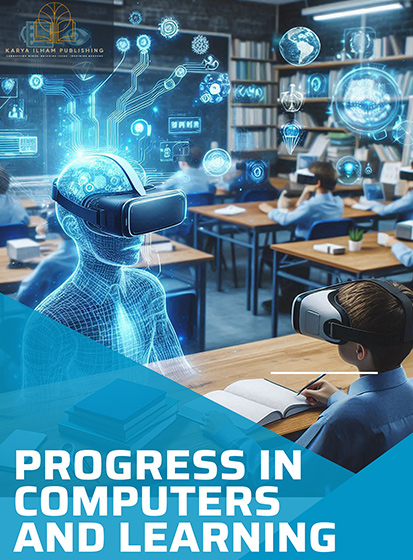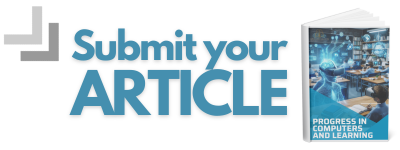Need Analysis for Developing a Problem-Based Learning E-Module in Mathematics with Integrated Global Citizenship Education
DOI:
https://doi.org/10.37934/picl.2.1.4048Keywords:
Problem-based Learning, Global Citizenship Education, global awareness, teachers’ perception, mathematicsAbstract
Global Citizenship Education is a framework designed to cultivate responsible citizens who respect values such as justice and equality, ultimately contributing to a more peaceful and sustainable world. By exposing primary school students to global issues, they can better understand critical challenges, particularly the eradication of global poverty, climate change, and peace, which can help them become more engaged global citizens. However, aspects of Global Citizenship Education are often overlooked in primary mathematics education. This study aims to evaluate mathematics teachers' perceptions of implementing a problem-based learning e-module that incorporates Global Citizenship Education into the topic of Data Handling. Additionally, it seeks to gauge the respondents’ agreement on integrating Global Citizenship Education (GCED) into the mathematics teaching and learning process. An online questionnaire (Google Form) was administered to 52 primary school mathematics teachers from the state of Negeri Sembilan. The findings indicate that 40% of the respondents were unfamiliar with Global Citizenship Education, and 70% had never incorporated it into their mathematics teaching. Nevertheless, 80% of the teachers agreed that integrating Global Citizenship Education themes into mathematics classrooms would enhance students’ global awareness and motivate them to learn mathematics. Furthermore, the study found that the Problem-Based Learning approach allows students to acquire new knowledge about real-world mathematical problems. In conclusion, there is a clear need to develop a problem-based learning e-module in mathematics that integrates Global Citizenship Education.
Downloads
References
[1] Liljedahl, Peter, Manuel Santos-Trigo, Uldarico Malaspina, and Regina Bruder. Problem solving in mathematics education. Springer Nature, 2016. https://doi.org/10.1007/978-3-319-40730-2 DOI: https://doi.org/10.1007/978-3-319-40730-2
[2] de Corte, Eric, Brian Greer, and Lieven Verschaffel, eds. Making sense of word problems. CRC Press, 2000.
[3] Csapó, Beno, and Joachim Funke. The Nature of Problem Solving: Using Research to Inspire 21st Century Learning. OECD Publishing. 2, rue Andre Pascal, F-75775 Paris Cedex 16, France, 2017. https://doi.org/10.1787/9789264273955-en DOI: https://doi.org/10.1787/9789264273955-en
[4] Jäder, Jonas, Johan Lithner, and Johan Sidenvall. "Mathematical problem solving in textbooks from twelve countries." International Journal of Mathematical Education in Science and Technology 51, no. 7 (2020): 1120-1136. https://doi.org/10.1080/0020739X.2019.1656826 DOI: https://doi.org/10.1080/0020739X.2019.1656826
[5] Ali, Riasat, Aqila Akhter, Saqib Shahzad, Najma Sultana, and Muhammad Ramzan. "The impact of motivation on students’ academic achievement in mathematics in problem based learning environment." International Journal of Academic Research 3, no. 1 (2011): 306-309.
[6] Baki, Adnan, Hakan Çatlıoğlu, Serkan Coştu, and Osman Birgin. "Conceptions of high school students about mathematical connections to the real-life." Procedia-Social and Behavioral Sciences 1, no. 1 (2009): 1402-1407. http://doi.org/10.1016/j.sbspro.2009.01.247 DOI: https://doi.org/10.1016/j.sbspro.2009.01.247
[7] Ginsburg, Herbert P., and Miriam Amit. "What is teaching mathematics to young children? A theoretical perspective and case study." Journal of Applied Developmental Psychology 29, no. 4 (2008): 274-285. https://doi.org/10.1016/j.appdev.2008.04.008 DOI: https://doi.org/10.1016/j.appdev.2008.04.008
[8] McMahon, Graham. "Critical thinking and ICT integration in a Western Australian secondary school." Journal of Educational Technology & Society 12, no. 4 (2009): 269-281.
[9] Gürsul, Fatih, and Hafize Keser. "The effects of online and face to face problem-based learning environments in mathematics education on student's academic achievement." Procedia-Social and Behavioral Sciences 1, no. 1 (2009): 2817-2824. http://doi.org/10.1016/j.sbspro.2009.01.501 DOI: https://doi.org/10.1016/j.sbspro.2009.01.501
[10] Savery, John R. "Overview of problem-based learning: Definitions and distinctions. Interdisciplinary Journal of Problem-Based Learning (2006). https://doi.org/10.7771/1541-5015.1002 DOI: https://doi.org/10.7771/1541-5015.1002
[11] Zhang, Junhao. "Educational diversity and ethnic cultural heritage in the process of globalization." International Journal of Anthropology and Ethnology 3, no. 1 (2019): 7. DOI: https://doi.org/10.1186/s41257-019-0022-x
[12] Education, Global Citizenship. " A Policy Making Awareness and Advocacy Handbook. Bangkok, UNESCO (2021).
[13] Education, Global Citizenship. "Topics and learning objectives." Organisation des Nations Unies pour l’éducation, la science et la culture. Printed in France UNESCO (2015).
[14] Rapoport, Anatoli. "We cannot teach what we don’t know: Indiana teachers talk about global citizenship education." Education, citizenship and social justice 5, no. 3 (2010): 179-190. https://doi.org/10.1177/1746197910382256 DOI: https://doi.org/10.1177/1746197910382256
[15] Davies, Ian, and Graham Pike. "Global citizenship education: Challenges and possibilities." The handbook of practice and research in study abroad (2010): 83-100. https://doi.org/10.4324/9780203876640-12 DOI: https://doi.org/10.4324/9780203876640-12
[16] Friedman, Jonathan. "Globalization, class and culture in global systems." Journal of world-systems research (2000): 636-656. https://doi.org/10.5195/jwsr.2000.198 DOI: https://doi.org/10.5195/jwsr.2000.198
[17] Aoki, Ted T. "Teaching as Indwelling Between Two Curriculum Worlds: The Coming Into Being of a Pedagogical Situation." Alberta Journal of Educational Research 70, no. 2 (2024). https://doi.org/10.55016/ojs/ajer.v70i2.79715 DOI: https://doi.org/10.55016/ojs/ajer.v70i2.79715
[18] Oxley, Laura, and Paul Morris. "Global citizenship: A typology for distinguishing its multiple conceptions." British journal of educational studies 61, no. 3 (2013): 301-325. https://doi.org/10.1080/00071005.2013.798393 DOI: https://doi.org/10.1080/00071005.2013.798393
[19] Giles, Libby. "Learning to live together and a life worth living." APCEIU reconciliation, peace and global citizenship education: Pedagogy and practice (2019): 12-19.
[20] Preparing our youth for an inclusive and sustainable world. The OECD PISA Global Competence Framework. OECD. (2018). https://www.oecd.org/education/Global-competency-for-an-inclusive-world.pdf
[21] Kim, Eun-Ji Amy. "Global citizenship education through curriculum-as-relations." Prospects 51, no. 1 (2021): 129-141. https://doi.org/10.1007/s11125-021-09554-w DOI: https://doi.org/10.1007/s11125-021-09554-w
[22] Khairil, Muhammad, Muhammad Nur Ali, Sharifah Zarina Syed Zakaria, Kadir Arifin, and Muhammad Rizal Razman. "Mass media coverage on terrorism in order to achieve peace and justice according to the World Agenda of Sustainable Development Goals (SDGs)." Information 20, no. 7A (2017): 4935â.
[23] Samsurijan, Mohamad Shaharudin, Azahan Awang, Kadir Arifin, Kadarudin Aiyub, Sharifah Zarina Syed Zakaria, and Muhammad Rizal Razman. "The conceptual framework for the quality of life urban village inhabitants’ assessment." Journal of Food, Agriculture and Environment 12, no. 2 (2014): 910-915.
[24] Zakaria, Sharifah Zarina Syed. "Science education in primary school towards environmental sustainability." Res. J. Appl. Sci 6 (2011): 330-334. https://doi.org/10.3923/rjasci.2011.330.334 DOI: https://doi.org/10.3923/rjasci.2011.330.334
[25] Razman, M. R., J. M. Jahi, M. B. Mokhtar, K. Arifin, Z. Ramli, K. Aiyub, S. Z. S. Zakaria, and A. Awang. "The law of tort focusing on negligence towards environmental sustainability in Malaysia within the scope of interest approach." Res. J. Appl. Sci 8 (2013): 398-403.
[26] Rauf, Rahyunir, Nurman Nurman, Sharifah Zarina Syed Zakaria, and Muhammad Rizal Razman. "Strategic Issues on Primary Students' Knowledge Towards Sustainability of Human Habitat and Environment." Journal of Food, Agriculture & Environment 15, no. 1 (2017): 61-63.
[27] Henderson, Linda. "Unleashing talent: An examination of VanTassel-Baska’s integrated curriculum model." Post-Script 5, no. 1 (2004): 54-73.
[28] Taba, H. "Handbook to Elementary Social Studies, an inductive approach." Reading, Massachussetts, Addison-Wesley Publishing, (1971).
[29] Bradbery, Deborah, and Ruth Reynolds. "Using an Integrated Curriculum to enhance primary students’ understandings of Global Citizenship." In Refereed paper presented to the Social Educators Association of Australia conference, February, pp. 19-12. 2010.
[30] Oxford. Maths and Global Citizenship. Oxfam, 2015
[31] Chiang, Choon Lai, Hii Ching Lik, Lim Siew Shee, Ong Sze Pheng, and Tiong Timm Joyce. "Improving Digital Communication among Engineering Students in Online Learning." Progress in Computers and Learning 1, no. 1 (2024): 25-35. https://doi.org/10.37934/picl.1.1.2535 DOI: https://doi.org/10.37934/picl.1.1.2535
[32] Reichardt, Charles S. "Experimental and quasi‐experimental designs for generalized causal inference." (2002): 510-514. https://doi.org/10.1086/345281 DOI: https://doi.org/10.1086/345281
[33] Campbell, Donald T., and Julian C. Stanley. Experimental and quasi-experimental designs for research. Ravenio books, 2015.
[34] Richey, Rita C., and James D. Klein. Design and development research: Methods, strategies, and issues. Routledge, 2007.
[35] Siraj, Saedah, N. Alias, Dorothy DeWitt, and Zaharah Hussin. "Design and developmental research: Emergent trends in educational research." (2013).
[36] Ebel, Robert L., and David A. Frisbie. "Essentials of educational measurement." 5th ed. New Dehli: Prentice-Hall, (1991).
[37] Wiersma, William. Research methods in education. Needhan Heights, 2000.















